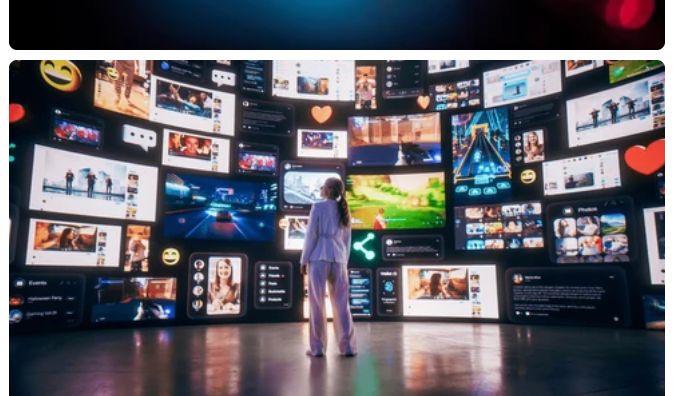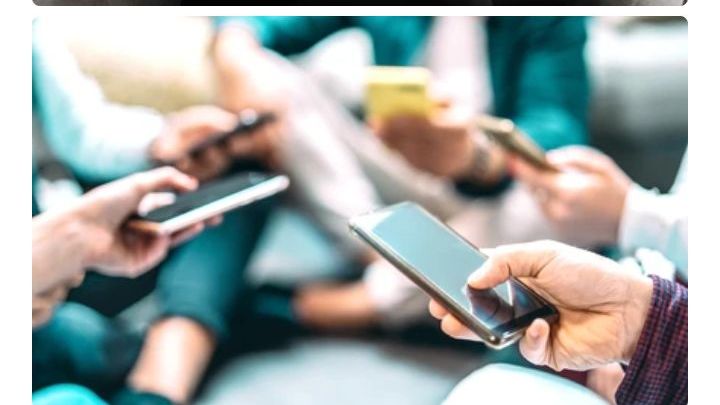The internet has transformed the way people live, work, and communicate, becoming an integral part of modern society. It connects billions of people around the globe, providing unprecedented access to information, services, and opportunities. From education and business to entertainment and socialization, the internet plays a pivotal role in shaping contemporary life. This article explores the various ways the internet has impacted society, its benefits, and its growing importance in the modern world.

1. The Internet as a Knowledge Hub One of the most profound impacts of the internet is its ability to democratize access to knowledge. Prior to the advent of the internet, information was largely confined to books, libraries, and institutions, making it difficult for many to access. Today, the internet offers virtually limitless resources on any topic imaginable, empowering individuals to educate themselves on subjects ranging from academic disciplines to practical life skills.
Online Learning : E-learning platforms such as Coursera, edX, and Khan Academy offer free or affordable courses to people all over the world. This has enabled millions of individuals to pursue higher education, develop new skills, and expand their knowledge without traditional barriers like location or cost.
Research and Collaboration : The internet has revolutionized research by allowing instant access to vast amounts of data, scholarly articles, and scientific journals. Additionally, it enables collaboration between researchers and experts from different parts of the world, accelerating the pace of innovation and discovery.
Open Access : The rise of open-access platforms and free online encyclopedias like Wikipedia has made it easier for people to access factual, well-organized information. This has significantly increased public knowledge and allowed people to stay informed about global events, scientific discoveries, and technological advancements.

2. Communication and Connectivity .
The internet has fundamentally transformed the way people communicate. With the rise of social media platforms, email, instant messaging, and video conferencing, geographical boundaries no longer impede human interaction. The internet fosters global communication, creating new forms of relationships, communities, and social networks.-
Social Media : Platforms like Facebook, Instagram, Twitter, and LinkedIn allow people to stay connected with friends, family, and colleagues, regardless of distance. These platforms also give individuals the opportunity to share their opinions, build online communities, and engage in meaningful conversations on a global scale.
Instant Messaging and Video Calls: Applications such as WhatsApp, Zoom, and Skype enable real-time communication through text, voice, and video. Whether for personal or professional purposes, these tools have made it easier than ever to maintain relationships, conduct meetings, and collaborate remotely.

Global Awareness and Activism : The internet has become a powerful tool for social and political activism. Global movements such as BlackLivesMatter and MeToo have gained momentum through online platforms, enabling individuals to raise awareness, organize protests, and advocate for change across borders.
3. Economic Opportunities and E-commerce
The internet has opened up a vast array of economic opportunities, revolutionizing industries and enabling new business models. E-commerce, in particular, has transformed the global retail landscape, allowing businesses to reach customers anywhere in the world.
Online Businesses : Many businesses have shifted their operations online, creating websites and e-commerce platforms that allow customers to purchase products and services with just a few clicks. Major companies like Amazon, Alibaba, and eBay have thrived by providing efficient, convenient online shopping experiences.
Entrepreneurship.
The internet has enabled entrepreneurs to launch and grow businesses with minimal overhead costs. Platforms like Etsy and Shopify allow individuals to sell products without the need for a physical store, while crowdfunding sites like Kickstarter and GoFundMe provide a means to raise capital for new ventures.
Freelancing and Remote Work : The rise of remote work and freelance opportunities has been greatly facilitated by the internet. Websites like Upwork, Fiverr, and Freelancer connect employers with freelancers across the globe, giving people the flexibility to work from anywhere. This has created new job opportunities and made work more accessible for many individuals.
4. The Internet and Education
In addition to its role as a knowledge hub, the internet has transformed formal education systems. Schools, universities, and other educational institutions now rely heavily on the internet for teaching, learning, and administration.
Distance Learning: The internet has made it possible for students to attend classes and earn degrees without physically attending a school. Online universities and distance learning programs have become increasingly popular, especially in the wake of the COVID-19 pandemic, which forced many institutions to transition to remote learning.
Access to Resources : Students and teachers can now access a wide range of online tools, including digital textbooks, videos, interactive simulations, and educational apps. These resources supplement traditional teaching methods and enhance the learning experience.
Collaboration and Peer Learning : The internet facilitates collaboration between students from different parts of the world. Online forums, study groups, and peer-to-peer learning platforms enable students to exchange ideas, work on group projects, and receive feedback from their peers.
5. Entertainment and Leisure.
The internet has also revolutionized entertainment, offering an endless array of options for leisure and creativity. Streaming platforms, online gaming, social media, and content-sharing websites have become central to how people consume and create entertainment.
Streaming Services : Platforms like Netflix, YouTube, and Spotify provide on-demand access to movies, TV shows, music, and videos, transforming the way people enjoy entertainment. These services allow users to curate personalized experiences, choosing what, when, and how they consume content.
Gaming and E sports: The internet has fueled the growth of the online gaming industry, allowing players to compete with others from around the world. Multiplayer games and E sports tournaments have become a major source of entertainment and even career opportunities for professional gamers.-
Content Creation : The rise of social media and content-sharing platforms has empowered individuals to create and share their own content. From blogs and podcasts to vlogs and TikTok videos, the internet provides an outlet for creative expression, allowing people to reach global audiences.
6. The Role of the Internet in Modern Governance and Democracy.
The internet plays a crucial role in promoting transparency, accountability, and civic engagement. It provides citizens with the tools to stay informed about government activities, engage in political discourse, and participate in democratic processes. E-Government : Many governments have adopted e-government initiatives, allowing citizens to access public services online. From tax filings to voter registration, the internet simplifies interactions between citizens and the state, making government processes more efficient and accessible. Political Engagement: Social media and online platforms have become key tools for political campaigns, enabling candidates to communicate directly with voters and mobilize supporters. Citizens can also use these platforms to engage in political discussions, sign petitions, and participate in activism.
Conclusion.
The internet has become indispensable in today’s world, influencing nearly every aspect of human life. From education and business to entertainment and politics, the internet continues to shape the way individuals interact with one another and the world around them. Its ability to provide information, foster global communication, and create economic opportunities has made it a vital tool for progress in the 21st century. As internet access expands to more parts of the world, its role in shaping the future will only grow.




